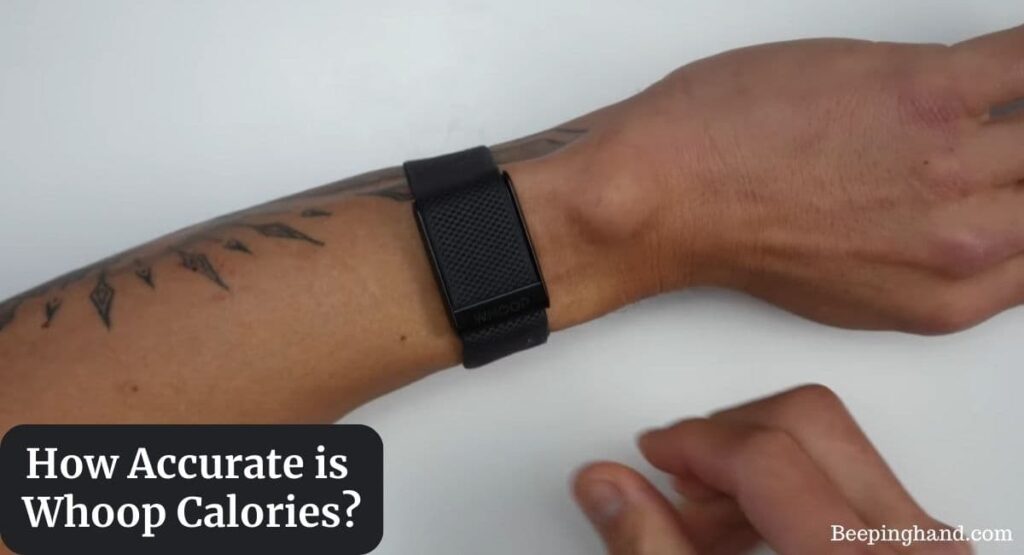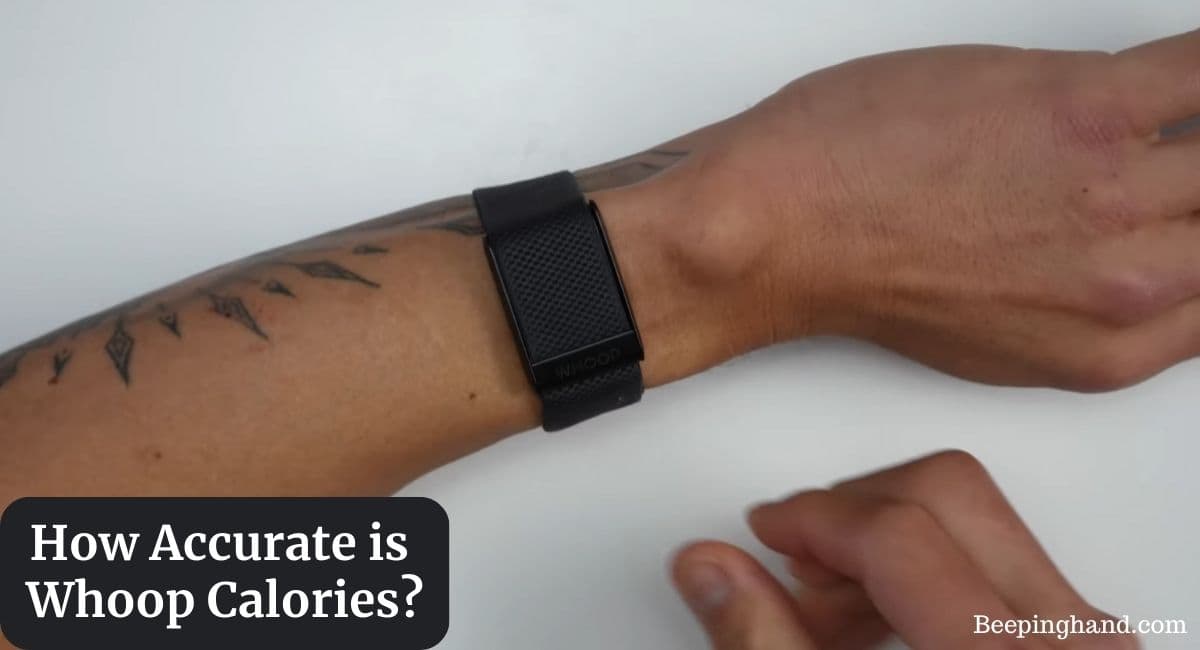The quest for accuracy is an ongoing pursuit. With the rise of wearable fitness devices, such as the Whoop fitness tracker, one burning question often arises: How accurate are the calorie measurements provided by these devices? Understanding the science behind Whoop Calories can shed light on the reliability of this popular fitness tool.
Here, we’ll explore How Accurate is Whoop Calories and get know to that Does Whoop Track Calories? So, keep reading this article completely.
How Accurate is Whoop Calories

If you are wondering to know about the Accuracy of Whoop Calories then you have come to the right place. Here, we’ve shared detailed information.
Does Whoop Track Calories?
Yes, WHOOP tracks calories. The WHOOP fitness tracker calculates calories burned based on factors like your heart rate, activity duration, and intensity. It also considers your Resting Metabolic Rate (RMR) and adds the calories burned during workouts to provide an overall estimate of the calories you’ve expended.
The Basics of Calorie Measurement
Before delving into the specifics of Whoop’s calorie calculations, let’s understand how calorie measurement works. Caloric expenditure is influenced by factors such as basal metabolic rate (BMR), physical activity, and the thermic effect of food.
Traditional methods involve indirect calorimetry, which estimates calorie consumption by measuring oxygen consumption and carbon dioxide production.
How Whoop Calculates Calories
Whoop employs an algorithm that combines data from various sensors, including heart rate, motion, and skin conductivity, to estimate calorie expenditure. By monitoring heart rate fluctuations and movement patterns, the device calculates the intensity of physical activity and adjusts the calorie count accordingly.
Factors Influencing Accuracy
Several factors can affect the accuracy of Whoop’s calorie calculations. Body composition, individual metabolism, and the type of physical activity performed all play a role.
Additionally, the accuracy of heart rate monitoring and the calibration of sensors contribute to the overall precision of calorie measurements.
The Science Behind WHOOP Calories
Heart Rate Monitoring
WHOOP tracks your heart rate with impressive accuracy. The device uses a combination of green LED lights and photodiodes to measure blood flow and determine heart rate. This information is crucial for estimating calorie burn during both rest and exercise.
Motion Sensors and Accelerometers
Incorporating motion sensors and accelerometers, WHOOP detects movement patterns and translates them into energy expenditure. This allows the device to differentiate between low-intensity activities like walking and more intense exercises like running or HIIT workouts.
Personalization and Machine Learning
One of WHOOP’s strengths is its ability to learn and adapt to your body over time. It collects data about your fitness level, sleep patterns, and daily activities. This data is then fed into algorithms that fine-tune the accuracy of calorie estimates for individual users.
Making the Most of WHOOP Calories
Using WHOOP as a Guide
While WHOOP’s calorie estimates are generally reliable, it’s important to use them as a guide rather than an absolute number. Pay attention to trends over time rather than fixating on daily fluctuations.
Combining Data for Better Insights
For a more comprehensive understanding of your energy balance, consider integrating WHOOP’s calorie data with information from other sources, such as a balanced diet and professional guidance.
Wrapping Up
This article is all about How Accurate is Whoop Calories. WHOOP stands as a credible option for estimating calorie burn. Its advanced technology, including heart rate monitoring, motion sensors, and machine learning, contributes to its accuracy. However, users should remain aware of its limitations and use the data as part of a holistic approach to health and fitness.
I hope this article was helpful to you and if you still find any queries then you may ask in the comment box. For more information visit the Help and Support Page of Whoop
FAQ’s How Accurate is Whoop Calories
Can WHOOP accurately track calories during weightlifting sessions?
While WHOOP is adept at tracking activities with consistent heart rates, it might struggle to provide precise calorie estimates during weightlifting due to the intermittent nature of the exercise.
Is there a significant difference between WHOOP and other fitness trackers in terms of calorie tracking?
While most fitness trackers use similar principles for calorie estimation, differences can arise due to variations in algorithms and sensor accuracy.
Can I rely solely on WHOOP’s calorie estimates to lose weight?
While WHOOP can be a valuable tool, sustainable weight loss requires a combination of factors including a balanced diet and regular exercise.
How often does WHOOP update its algorithms?
WHOOP continuously updates its algorithms based on user data and advancements in technology.
Is WHOOP’s calorie estimation equally accurate for all body types?
Calorie estimation can be influenced by individual factors such as body composition and metabolism, which might lead to variations in accuracy.
